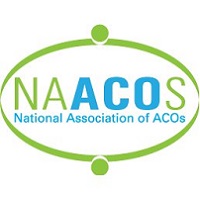 More than 160 ACOs Signed a Letter Delivered to Capitol Hill
More than 160 ACOs Signed a Letter Delivered to Capitol Hill
More than 500 accountable care organizations (ACOs), medical practices, and health systems urged leaders in Congress in a letter sent to preserve important Medicare bonuses that encourage participation in risk-bearing alternative payment models (APMs). This year, providers in APMs have been better positioned to react to the pandemic and manage patients’ needs, and a lack of action by Congress threatens Medicare’s movement to a system that better rewards value and patient outcomes, rather than volume.
To secure the 5 percent bonus on annual Medicare payments, providers must have a certain level of Medicare revenue through or patients part of a risk-bearing APM. Those thresholds jump to unrealistic levels in 2021. A survey earlier this year from the National Association of ACOs (NAACOS) (@NAACOSnews) found that 96 percent of the 216 ACO respondents would not meet the 2021 thresholds based on their performance in 2020. This letter asks Congress to freeze 2020 thresholds for another two years.
“The sheer volume of front-line providers in ACOs, medical practices, and health systems that put their names on this letter delivers a strong message to Congress that it should act before thresholds increase in January,” said Clif Gaus, Sc.D., NAACOS president and CEO. “ACOs and others in value-based payment arrangements have done a better job of caring for patients during the pandemic and need support to continue that important work.”
Based on interviews, we know population-focused organizations such as ACOs were well positioned to both identify patients at risk early in the pandemic and manage the comorbidities of the pandemic survivors. Capabilities include keeping registries of patient histories and problems, deploying a staff of clinical coordinators to manage high-risk patients with chronic conditions, leveraging established relationships with post-acute facilities to deliver effective care transitions, and expanding telehealth services.
“If providers cannot count on receiving these bonus payments, due to unrealistic thresholds, fewer providers will be willing to participate in APMs in the future, exactly the opposite of what MACRA’s authors intended when they drafted the threshold tests,” the letter states. “This would represent an unfortunate setback in the progress we have made in advancing the value movement and would undermine Medicare’s long-term transition to greater levels of performance-based risk.”
ACOs have been critical to Medicare’s efforts to lower the cost of care and improve patients’ quality of care. More than 92 percent of clinicians who received a 5 percent bonus in 2017 did so through an ACO. In 2019, Shared Savings Program ACOs collectively saved Medicare $2.6 billion, and $1.2 billion after accounting for shared savings bonuses and shared loss payments. Moreover, 92 percent of these ACOs earned reward points for improving the quality of care for their patients.
